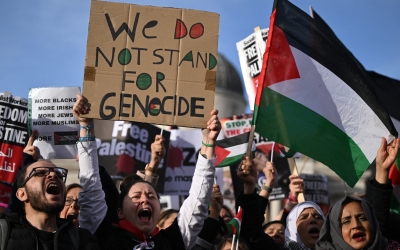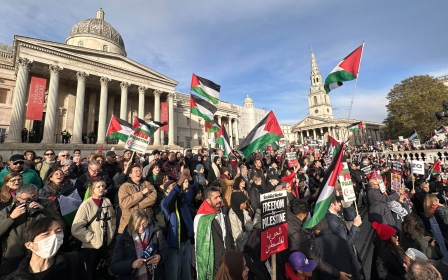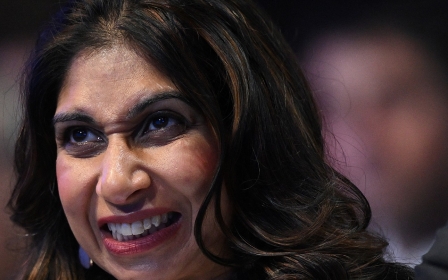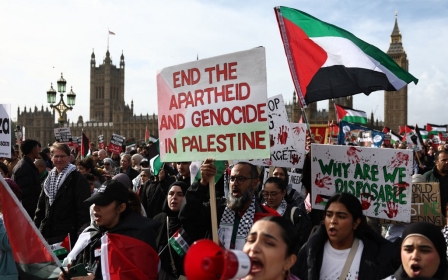Israel-Palestine war: West Bank residents heap praise on London solidarity protests
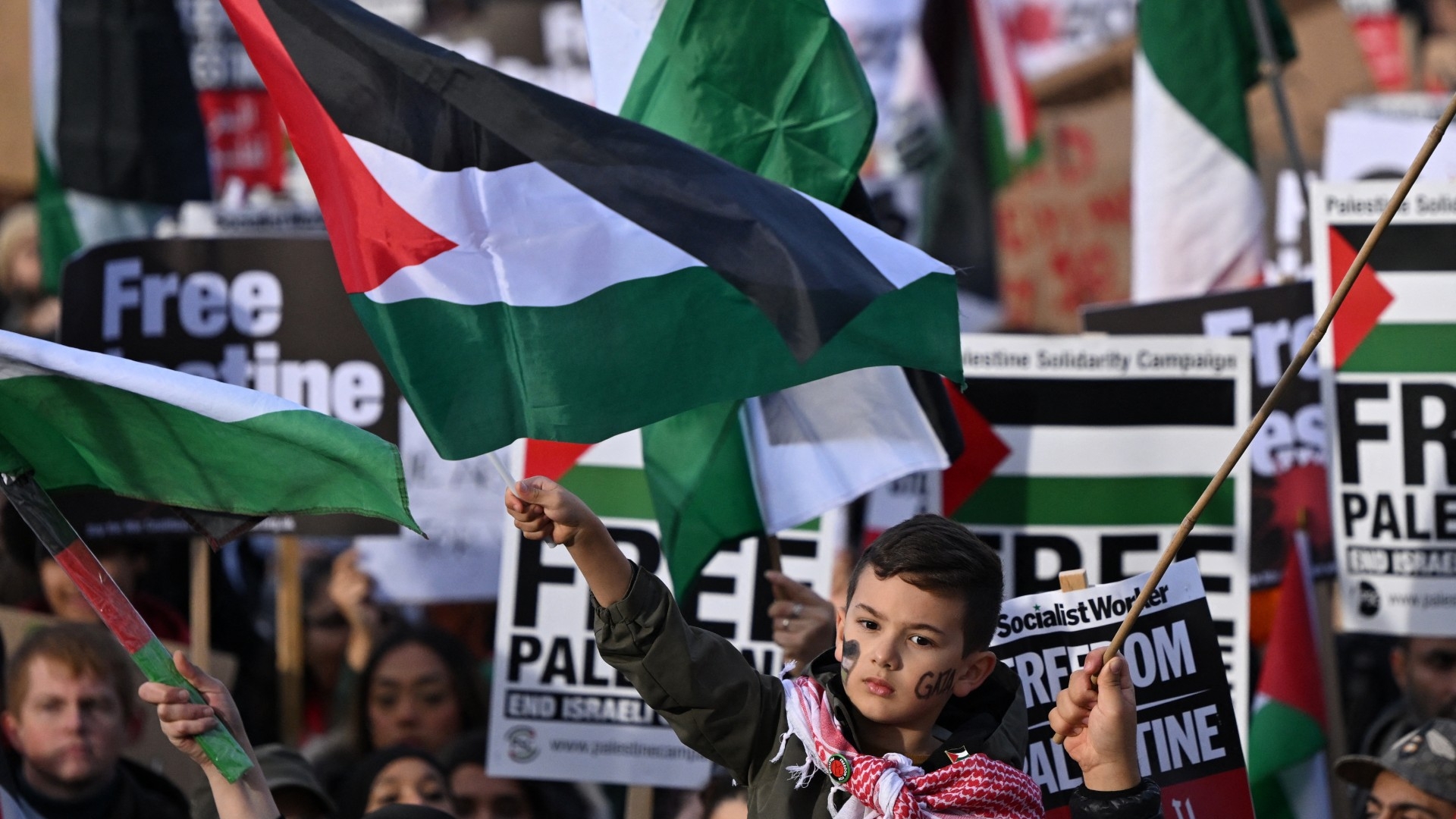
Palestinians in the occupied West Bank have praised British nationals for holding weekly protests in solidarity with those under bombardment in Gaza, despite attempts by the UK government to have them cancelled and ministers referring to them as "hate marches".
Ibrahim Omran, the head of a local council in the besieged village of Burin just south of Nablus, told Middle East Eye that he was touched to see massive demonstrations in London over the past month, with hundreds of thousands pouring onto the streets to denounce Israel's relentless bombing campaign in the Gaza Strip.
"I want to thank the people of Britain for marching in support of Palestine," he said.
"I hope the people protesting against the war will influence the British government. They are a great solidarity for us," he added.
This Saturday's protest in London coincides with Armistice weekend, a nationwide annual remembrance of the end of World War I when many in the UK pause to remember the victims of war.
New MEE newsletter: Jerusalem Dispatch
Sign up to get the latest insights and analysis on Israel-Palestine, alongside Turkey Unpacked and other MEE newsletters
However, earlier this week, UK Home Secretary Suella Braverman accused police of "playing favourites" and failing to treat "pro-Palestinian mobs" the same way as right-wing and nationalist protestors after the police said they could not legally ban the march.
"I do not believe that these marches are merely a cry for help for Gaza," Braverman wrote in an article published by the Times newspaper.
"They are an assertion of primacy by certain groups – particularly Islamists – of the kind we are more used to seeing in Northern Ireland. Also disturbingly reminiscent of Ulster are the reports that some of Saturday’s march group organisers have links to terrorist groups, including Hamas."
Protest organisers have repeatedly said they would not pass by the Cenotaph, Britain's national war memorial in central London, and the rally would happen in the afternoon after a minute of silence is held at 11 am.
Braverman's comments drew heavy criticism, including from opposition politicians and activists.
Follow Middle East Eye's live coverage for the latest on the Israel-Palestine war
David Lammy, a Labour MP, said Braverman was looking to "exploit the sensitivities of this moment, and an ignorance to Northern Ireland’s history… for her own leadership campaign".
Labour Party spokesperson Yvette Cooper called Braverman "out of control" and said that "no other home secretary of any party would ever do this".
The UK government and the main opposition party, the Labour Party, have refused to call for a ceasefire in Gaza, a position that has drawn widespread criticism from anti-war protesters.
In the Palestinian hamlet of Kifl Haris, some 18km south of Nablus, village elder Abdul Kareem told MEE that Saturday's march was "evidence that the British people have a conscience and reject the killing of innocent persons".
In the weeks since Hamas' unprecedented attack on Israel, an estimated 1.4 million Palestinians have been displaced from their homes, according to the Palestinian health ministry.
So far, more than 10,500 Palestinians have been killed, including more than 4,500 children, while around 2,500 people are missing.
Food, fuel and water supplies are also rapidly dwindling in the enclave amid a total Israeli siege.
The World Health Organisation has warned of the risk of disease spreading due to intense overcrowding in camps, and Israeli air strikes destroying health, water, and sanitation systems.
In recent weeks, violence and unrest have spiralled across the occupied West Bank, with at least 176 people killed by Israeli forces and settlers.
Feras Diab, the head of the municipality of Deir Istiya, a Palestinian settlement some 15km southwest of Nablus, told MEE that his community had come under repeated attack from settlers in recent weeks.
He added that Palestinian farmers were receiving threatening warnings such as: "You wanted war, wait for the great Nakba."
The Nakba, or "catastrophe" as it's known in English, refers to the ethnic cleansing of some 750,000 Palestinians from their lands and homes in historic Palestine to make way for the creation of Israel in 1948.
Diab also told MEE that his photo and personal details had been added to a threatening Telegram group called the "Nazi hunters" that was targetting prominent Palestinians and those opposed to the war.
Still, he said he took solace from the London protests, given the UK's role in supporting Israel.
"We believe that this intensive protest will exert pressure to stop the war. Especially because it takes place in a country like Britain which stands clearly with Israel and has never helped the Palestinians."
Middle East Eye delivers independent and unrivalled coverage and analysis of the Middle East, North Africa and beyond. To learn more about republishing this content and the associated fees, please fill out this form. More about MEE can be found here.


